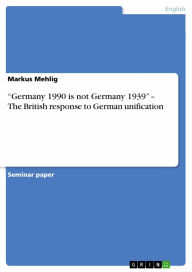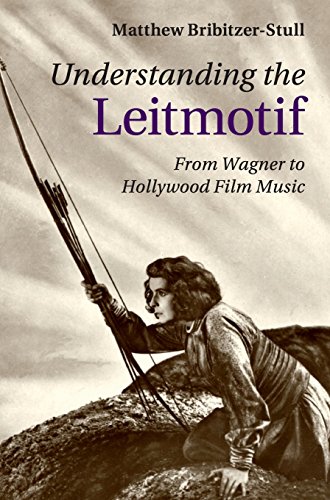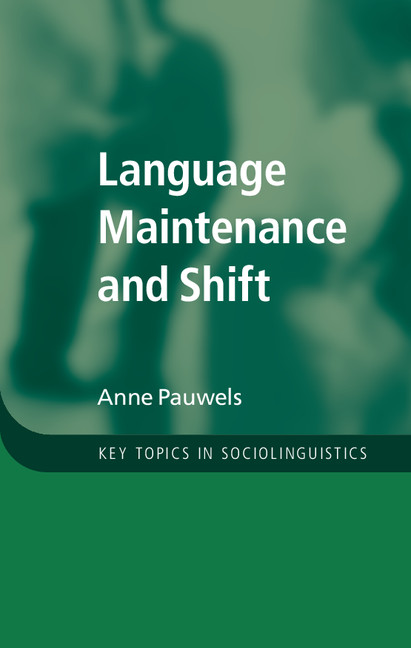'Germany 1990 is not Germany 1939' - The British response to German unification: The British response to German unification
by Markus Mehlig
2020-05-07 04:33:53
'Germany 1990 is not Germany 1939' - The British response to German unification: The British response to German unification
by Markus Mehlig
2020-05-07 04:33:53
Seminar paper from the year 2009 in the subject English Language and Literature Studies - Culture and Applied Geography, grade: 1,3, Dresden Technical University (Anglistik/Amerikanistik), course: Seminar 'Britain in Europe - Europe in Britain', lang...
Read more
Seminar paper from the year 2009 in the subject English Language and Literature Studies - Culture and Applied Geography, grade: 1,3, Dresden Technical University (Anglistik/Amerikanistik), course: Seminar 'Britain in Europe - Europe in Britain', language: English, abstract: When the first bricks and pieces of the Berlin Wall fell to the ground on 9 November 1989, the German soil might not have been the only thing that has been shaking on that day: As soon as the news arrived in Number 10 Downing Street, London, the floor in Margaret Thatcher's office might have been shaking as well. The metaphorical earthquake German reunification is considered today to have been in those days did not only cause disorientation and confusion in both German states but also in Great Britain. Since the four victorious powers decided to split the German nation into four parts - that later became only two - at the Yalta conference, the British felt save from their greatest enemy during the Second World War. The balance of power between the Soviet Union and the West seemed to be restored after the Cold War. Germany was not strong enough to even try to start a new war, which caused a strong securely feeling among the British people and its government. Now, that this stony guarantee for peace got its first cracks it forced the peaceful atmosphere - not only the British created in the bygone decades - to crack as well. In this paper I want to describe the response of both British politicians and the British people to the events that happened in the months between November 1989 and October 1990, but mainly concentrate on two of the most important ones for British politics during this time, namely the Nicholas Ridley affair and the revelation of the minutes of the Chequers meeting. The British press of course has not ignored these events. Since it became one of the most important commentators on the upheaval that went on in Germany and the British domestic discussions and affairs, I want to underline the statements and comments made by politicians or other spokesperson of public opinions with excerpts of British newspapers. [...]
Less




















.jpg)







